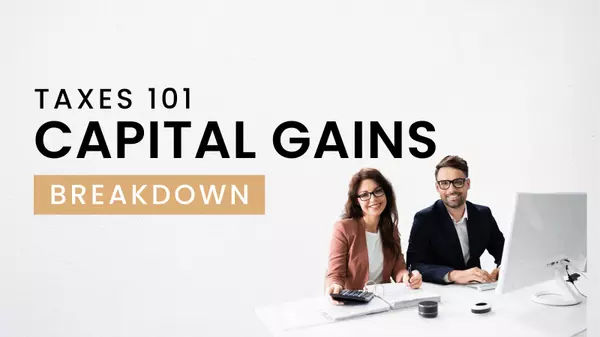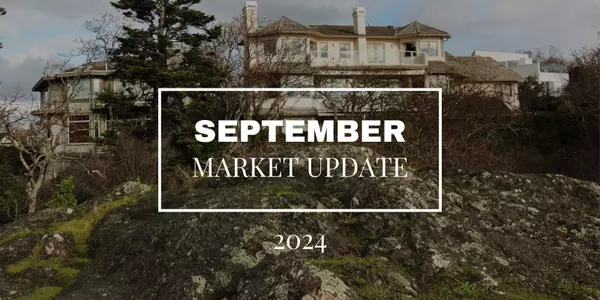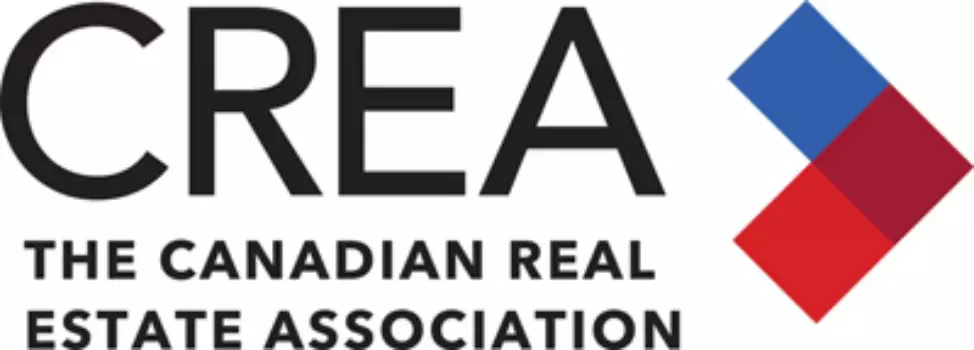MORE POSTS
Capital Gains Tax 101: A Simple Breakdown
Navigating New Tax Rules for Real Estate Gains
Estimated Reading Time: 12-15 minutes
Are you thinking about jumping into real estate investing? Or maybe you’ve already got a few properties under your belt and are planning your next move? Whether you're a seasoned investor or just starting out, the 2024 changes to capital gains tax could seriously impact how you think about your investments. For years, real estate has been a go-to for building wealth—offering stability, growth, and long-term value. But with these new tax rules on the horizon, it might be time to rethink your strategy, especially if real estate plays a big part in your retirement plans or overall financial goals.
What Exactly Are Capital Gains?
Capital gains are essentially the profits you make when you sell a property for more than you bought it. If you purchased a property for $300,000 and sold it for $400,000, that $100,000 difference is your capital gain. The key point is that in Canada, only part of that gain is taxed—historically, 50% of it. That other 50% is completely tax free! Obviously, this favorable tax treatment has made real estate an attractive option for investing.
But with the new rules coming into effect, that tax treatment is changing.
Capital Gains Tax Increase: The taxable amount for capital gains over $250,000 will rise from 50% to 66.7%.
Impact on Investment Strategy: This increase means you’ll likely face higher taxes on large real estate profits, making it critical to reevaluate your selling strategy.
Planning Ahead: You can still make the most of your gains by adjusting when you sell properties or tweaking your portfolio, but you’ll need to plan carefully to reduce your tax liabilities and maximize your financial outcomes.
Let’s Get Into The Specifics
Under the new rules, the first $250,000 of your gains will still be taxed at the current 50% rate, which provides some relief for smaller investors. However, any profits over that amount will be taxed at 66.7%. This might seem like a subtle change, but it can have a large impact if you’re making significant profits. For example, if you sell a property for a large gain, the portion of your profits that goes toward taxes could be significantly higher than in the past, leaving you with less in your pocket.
It’s also important to remember that capital gains on your primary residence are still tax-free, as long as it has been your main home. The principal residence exemption ensures you won’t pay capital gains taxes when selling your home. However, in British Columbia, if you sell your primary residence within 730 days (two years) of purchasing it, you may still face the BC home flipping tax, even if it’s your principal residence. Basically, the timing of your sale is essential to avoid these extra taxes!
The new rules also impact corporations and trusts, which are often used to hold properties for tax planning purposes. All capital gains made by these entities will be taxed at the new 66.7% rate, regardless of the amount. This could lead to higher tax bills for those using these structures to manage large property portfolios.
What Do These Changes Look Like in Practice?
Let’s break down how these new tax rules will work in practice with some examples. Understanding how the numbers play out can help you see what kind of impact these changes will have on your investment returns.
Example #1: The Smaller InvestorLet’s say you sell a property and make a $400,000 profit. Under the new rules, here’s how your taxable amount breaks down:
First $250,000: You’ll be taxed on $125,000, since this part of the gain is still taxed at 50%.
Next $150,000: The rest of the profit will be taxed on $100,050, as 66.7% is now taxable under the new law.
In total, you’ll be taxed on $225,050 of your $400,000 gain. That’s $25,050 more than you would have been taxed under the old rules, potentially pushing you into a higher tax bracket and increasing the overall taxes you owe.
Example #2: The Large-Scale InvestorNow imagine you sell a property and walk away with a $600,000 gain. Here’s how the new rules would impact you:
First $250,000: Like before, $125,000 will be taxed.
Remaining $350,000: Under the new rules, 66.7% of this portion, or $233,450, will be taxed.
This means a total of $358,450 from your $600,000 gain will be taxable, which is $58,450 more than under the old rules. This larger taxable amount could have a serious impact on your overall financial plans.
What You Can Do to Plan Ahead
Now that the 2024 tax changes are in effect, you may be wondering how to minimize the impact of the higher taxes on your real estate profits. Don’t worry—there are still strategies you can use to manage your tax burden and maximize your returns. Here are a few smart moves to consider:
Use Capital Losses to Offset Gains
If you’ve had any investments that didn’t pan out or properties that underperformed, you can use those losses to offset your gains. Selling those loss-making investments now can reduce the overall taxable amount of your capital gains. This is especially useful if you’ve already been hit with the higher 66.7% inclusion rate on gains over $250,000.
Spread Out Future Sales
If you own multiple properties, consider staggering your sales over the next few years. By spreading out your transactions, you can keep more of your profits below the $250,000 threshold, where only 50% of the gain is taxed. This can help you avoid having a large portion of your gains taxed at the higher rate.
Optimize Your Property Portfolio
Now’s the time to take a closer look at your portfolio and decide which properties you should hold onto and which ones you might want to sell. If some of your properties are appreciating faster than others, it could make sense to hold them longer and avoid selling at a time when the tax hit would be high. On the flip side, you might want to sell lower-performing properties to minimize future tax liabilities.
Work with a Tax Professional
The new tax rules add extra layers of complexity, and navigating them without help can be overwhelming. A tax advisor can provide guidance tailored to your specific situation, helping you reduce your tax burden and develop a strategy that fits the new landscape. They’ll ensure that you're using all available options to minimize the impact of these changes on your profits.
[Insert Link: "Talk to a tax professional about your strategy" or similar CTA]
Why Are These Taxes Even Increasing?
We can probably summarize this by saying that the federal government saw an opening for an increase in tax revenue. This is not something we necessarily agree with but real estate has been a hot market for years and property values are soaring in many areas. As a result, people have been making significant profits. The Canadian government’s goal with these changes is to ensure that higher earners, especially those profiting from the booming real estate market, pay a proportionate share of taxes.
By increasing the taxable percentage on gains over $250,000, the government aims to strike a balance between encouraging real estate investment and ensuring tax fairness.
Final Thoughts: Staying Ahead of the Game
The 2024 capital gains tax changes are a big deal for real estate investors. Whether you’re just getting started or you’ve been in the game for years, these new rules mean it’s time to reevaluate your strategy.
Proper planning is key. By adjusting when and how you sell properties and using strategies like spreading out sales or offsetting gains with losses, you can minimize the impact of the new tax rates and keep your financial plans on track.
While the changes might seem overwhelming at first, remember that there are ways to navigate this new landscape smartly and strategically. Don’t wait until the last minute—start planning now to make sure you’re ready for whatever comes next.
Disclaimer: The information provided in this blog post is for general informational purposes only and does not constitute personalized real estate, financial, or legal advice. Every individual's situation is unique, and the strategies or tips discussed may not be suitable for all circumstances. We recommend consulting with a real estate professional, accountant, or lawyer before implementing any approaches mentioned to ensure they align with your specific needs and circumstances.
September 2024 - Victoria MLS Market Update
Market Shows Stability Heading into Fall
September 2024 saw a steady real estate market in Victoria, BC, with 571 properties sold—a 15.8% increase from the 493 sold in September 2023, and a 4.8% rise from August 2024. This signals a more active market as buyers and sellers return from summer breaks.
Sales Breakdown:
Condominiums: Sales jumped 21.9% compared to September 2023, with 189 units sold.
Single-Family Homes: Sales increased by 19.3%, with 272 homes sold.
2024 Victoria Real Estate Board Chair Laurie Lidstone commented on the current market dynamics: “The real estate market in Victoria right now is much more stable and predictable than it has been in recent years. We’ve seen a few solid months of near-balance, offering advantages for both buyers and sellers. With downward trending interest rates, stable pricing, and increased inventory, it’s one of the most comfortable markets for consumers to navigate in years.”
Inventory and Market Conditions
At the end of September 2024, there were 3,361 active listings on the MLS®, marking a 5.3% increase from August and a 24.5% rise from September 2023. This growing inventory provides more choices for buyers, but in-demand homes can still generate competition.
“In a balanced market, there’s less pressure on pricing, and buyers have more time to make decisions,” Lidstone added. “However, homes in desirable locations or price points can still attract multiple offers. Connecting with a local REALTOR® can help you navigate these nuances and build the best strategy.”
Pricing Trends
Single-Family Homes: The MLS® HPI benchmark value for a single-family home in the Victoria Core dropped by 2.8% year-over-year, from $1,316,100 in September 2023 to $1,279,700 in September 2024. This also represents a slight decrease from August’s $1,287,400.
Condominiums: The benchmark value for a condominium in the Victoria Core decreased by 5.1%, from $583,400 in September 2023 to $553,400 in September 2024, down from August’s $559,200.
Looking Ahead to the Fall Market
With the summer slowdown behind us, September signals a more active period in Victoria’s real estate market. Stable prices and a larger inventory make this fall an ideal time for both buyers and sellers. As always, consulting with a local REALTOR® is key to navigating the evolving market conditions.
For more detailed statistics and market insights, visit the Victoria Real Estate Board.
Seller's Guide: 6 principles to get top dollar
A Comprehensive Guide to Selling Your Home in Victoria, BC
Estimated Reading Time: 12-15 minutes
Selling your home in Victoria BC can be both exciting and challenging. Whether this is your first time selling or you’re a seasoned seller, it's crucial to approach the process strategically to get the best outcome. The Victoria real estate market is competitive, and selling a home for sale in Greater Victoria requires thoughtful planning. In this guide, we’ll walk you through six key steps to ensure you sell your home for the best price and on favorable terms.
Download your personalized Seller’s Guide here.
Step 1: Why Pricing Right is Key
Setting the right price when listing your Victoria home for sale is essential for a successful sale. Pricing your home correctly from the start will attract the right buyers and ensure a quick, profitable sale. In Victoria real estate, pricing too high may cause your home to sit on the market for too long, while underpricing may leave money on the table.
Why Pricing Matters:
Attracting More Buyers: A well-priced home generates more interest and showings, often leading to multiple competitive offers.
First Impressions Count: Overpricing can deter buyers from even viewing the property, while pricing it attractively creates excitement.
Time on the Market: Homes that linger on the market often lose appeal. A competitively priced home will sell faster in the Greater Victoria real estate market.
How to Price Your Home Right:
Market Analysis: Your Realtor will conduct a Comparative Market Analysis (CMA), comparing similar real estate listings in Victoria to determine a competitive price.
Current Market Trends: Understanding whether it’s a buyer’s or seller’s market will also help determine the best pricing strategy for your Victoria home.
Pre-Listing Appraisal: A professional appraisal can help provide an accurate estimate of your home’s value, ensuring you’re not over or underpricing it in the Victoria real estate market.
Ultimately, pricing your home correctly from the beginning is critical to attracting serious buyers and achieving a successful sale.
Step 2: Preparing Your Home to Impress Buyers
Once your home is priced correctly, it's time to get it ready for the market. Buyers in Victoria BC are looking for homes that are well-maintained and move-in ready. The more effort you put into preparing your home, the better it will perform in the competitive Greater Victoria market.
Steps to Prepare Your Home:
Deep Cleaning: Buyers expect a spotless home. Thoroughly clean every room, focusing on areas like kitchens, bathrooms, and windows, to make a great first impression.
Declutter and Depersonalize: Buyers need to imagine themselves living in your home. Remove personal items like family photos and declutter surfaces and closets to showcase your home’s potential.
Minor Repairs: Fix minor issues like leaky faucets, chipped paint, and squeaky doors. Small repairs can make a big difference in how buyers perceive the property.
Staging: Consider professional staging to highlight your home’s best features. Staging helps buyers envision the space and can result in a higher selling price.
Curb Appeal: The exterior of your home is the first thing buyers see. Mow the lawn, plant flowers, and repaint the front door to create a welcoming entrance.
The Impact of Staging:
Homes that are professionally staged typically sell 49% faster and for 7-11% more than homes that aren’t staged. Whether you’re selling a character home in James Bay or a luxury home in Greater Victoria, staging can make a significant impact.
Step 3: Marketing Your Home for Maximum Exposure
With your home prepped and priced, it’s time to get it in front of as many potential buyers as possible. Effective marketing is key to ensuring your home gets the exposure it needs to sell quickly and for top dollar in the Victoria real estate market. Both traditional and digital marketing methods should be used to attract buyers.
Key Marketing Strategies:
MLS® Listings in Victoria: The Multiple Listing Service® (MLS®) is one of the most effective tools for selling your home. Listing your home on MLS® ensures that it is seen by thousands of potential buyers and their agents. Buyers frequently use MLS® systems to search for houses for sale in Victoria.
Professional Photography: High-quality photos of your home are essential for attracting buyers online. Most buyers begin their real estate search by browsing listings online, so visually appealing photos are a must.
Social Media Campaigns: Social media platforms like Instagram, Facebook, and Twitter are great tools for promoting your home for sale in Victoria. Your Realtor can create targeted campaigns to reach a wider audience.
Virtual Tours: Offering virtual tours allows potential buyers to explore your home remotely. This is particularly beneficial for out-of-town buyers looking at Victoria real estate listings.
Property Websites: Creating a dedicated property website with photos, videos, and all the information buyers need can also help market your home more effectively.
The goal is to create a strong online and offline presence to attract a wide pool of potential buyers to your listing.
Step 4: Creating High-Quality Marketing Materials
While digital marketing is essential, don't forget about traditional marketing methods. Print materials such as brochures, flyers, and direct mail campaigns can still be highly effective in selling homes in Victoria BC.
Effective Print Marketing Includes:
Beautifully Designed Brochures: Brochures can be handed out at open houses and showings, providing buyers with detailed information about the property.
Direct Mail Campaigns: Sending mailers to nearby neighborhoods can attract local buyers who may be looking to upgrade or move within Greater Victoria.
A combination of traditional and digital marketing ensures that your home reaches the widest possible audience.
Step 5: Mastering Negotiations in the Victoria Real Estate Market
Once you start receiving offers, it’s time to negotiate. Skilled negotiation can make a big difference in the final sale price of your Victoria BC home. It’s important to remain flexible and open to offers while keeping your goals in mind.
Negotiation Tips:
Remain Flexible: Lowball offers are common in real estate transactions. Treat them as starting points for negotiation rather than outright rejections.
Evaluate the Full Offer: Besides the price, look at contingencies, closing timelines, and financing options. A higher offer may not always be the best one if the terms are not favorable.
Work With Your Realtor: Your Realtor will handle the back-and-forth negotiations, ensuring that your interests are protected while helping you achieve the best possible outcome.
Step 6: Understanding Closing Costs and Fees
Before finalizing the sale, make sure you're aware of the closing costs associated with selling your home. These costs can impact your net proceeds, so it’s important to factor them into your calculations.
Common Closing Costs:
Legal Fees: In BC real estate transactions, lawyers typically charge around $1,200 for handling title transfers, contract reviews, and other paperwork.
Mortgage Discharge Fees: If you’re paying off a mortgage, your lender may charge a discharge fee, typically between $150 and $250.
Real Estate Agent Commissions: Typically, sellers pay a commission to their agent, which is a percentage of the sale price.
Adjustments: Your lawyer will calculate adjustments for utilities, property taxes, and other costs up until the closing date.
Final Thoughts on Selling Your Home in Victoria, BC
Selling a home in Victoria BC involves several key steps, from pricing it right to marketing it effectively. By following these six steps—setting the right price, preparing your home, leveraging digital and print marketing, negotiating effectively, and understanding closing costs—you can ensure a smooth and profitable sale.
The Greater Victoria real estate market is diverse, offering everything from luxury homes in Sooke to character homes in James Bay. Whether you’re selling a condo near Victoria’s Inner Harbour or a detached home in the suburbs, the right strategy can make all the difference.
Connect With a Realtor
If you're ready to sell your home or have any questions about the Victoria real estate market, contact our team of experienced Realtors today. We specialize in Victoria real estate listings and are committed to helping you achieve the best results for your home sale.
Disclaimer: The information provided in this blog post is for general informational purposes only and does not constitute personalized real estate, financial, or legal advice. Every individual’s situation is unique, and the strategies or tips discussed may not be suitable for all circumstances. We recommend consulting with a real estate professional, accountant, or lawyer before implementing any of the approaches or suggestions mentioned to ensure they align with your specific needs and circumstances.

Dirk Popen
Phone:+1(778) 678-2597









